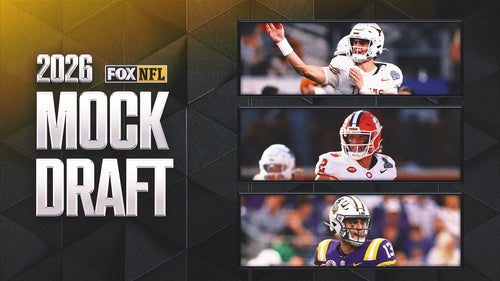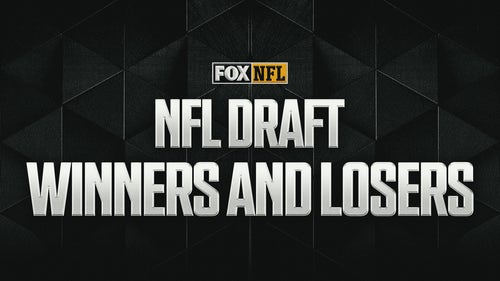
NFL needs to change violent culture
A day after delivering a helmet-to-helmet hit that left Cleveland running back Josh Cribbs unconscious for several minutes, Pittsburgh linebacker James Harrison drew a distinction that only an NFL player could make:
“A hit like that geeks you up, especially when you find out that the guy is not really hurt, he’s just sleeping.”
Just sleeping? I get it. It’s like a Disney thing, right? Like, then he wakes up and there’s a happy ending?
As it happens, Harrison will probably be suspended under the NFL’s new, hastily conceived "dirty hits" policy. After all, he knocked out not one, but two Cleveland Browns with helmet-to-helmet hits on Sunday. The league’s directive might be a little too late, but it’s also the best one could hope for. What’s more, Harrison deserves an award for his candor. He’s only explained the game for what it is, what it always has been, and what we love.
“I try to hurt people,” said Harrison.
Given the issue of concussions -- and all the belatedly justifiable attention it has received -- Harrison’s remark will be dismissed as politically incorrect. It may be. But it also warrants the highest level of attention. On Monday, the league’s Vice President of Operations said that given the apparent spate of players concussed by helmet-to-helmet hits, the league would consider suspensions, even for first-time offenders. Tuesday, the NFL announced this consideration as a matter of policy. Still, this shouldn’t be a matter for some faceless VP of Operations. This is for the commissioner, Roger Goodell, his own self.
He can fine you for not wearing your socks at regulation height.
He can police your text messages.
He should be able to outlaw the helmet-to-helmet hit, once and for all.
I’m not minimizing his task. It’s nothing less than extraordinary. For all the clichéd nonsense about "the culture of the game," it now falls to Goodell to finally change it. The NFL’s own medical staff figures there are an average of .7 concussions a game, or, by my count, about 157 concussions over the course of a 16-game season. Sunday’s games saw devastating shots absorbed by Cribbs, DeSean Jackson and Dunta Robinson, (yes, he was the hitter, not the hittee), Todd Heap, Zack Follett, Chris Cooley and Mohamed Massaquoi. And how many concussed quarterbacks this season? David Garrard, Kevin Kolb, Jay Cutler, Aaron Rodgers, Matt Moore. Who am I missing? Then again, Goodell isn’t up against last Sunday or last year. Penalties don’t work. Fines don’t work. Suspensions might. But if he really wants to fight the good fight, Goodell is well advised to understand that he’s going up against the history of the game.
Consider Harrison’s remarks in relation to what Oakland’s famously violent free safety, Jack Tatum, wrote in his autobiography: “My idea of a good hit is when the victim” -- the victim! -- “wakes up on the sidelines with train whistles blowing in his head and wondering who is he and what ran over him ...
“I never make a tackle just to bring someone down. I want to punish the man I’m going after and I want him to know that it’s going to hurt ...”
Sound familiar?
“I like to believe that my best hits border on felonious assault ...”
"They Call Me Assassin" was published in 1979, the year after Tatum’s perfectly legal hit made a quadriplegic of Patriots receiver Darryl Stingley in a preseason game.
It’s worth noting that a couple of years before that, former Steelers coach Chuck Noll accused the Raiders and, in particular, Tatum’s fellow defensive back, George Atkinson, as the NFL’s “criminal element.” In fact, they were good football players. And that’s the real problem.
Attitudes haven’t changed. But as the average player has gotten bigger, stronger and faster, his capacity for violence has increased. Even before the onset of adolescence, guys are fashioning themselves -- physically and psychologically -- into human torpedoes. Goodell isn’t going to change the ballplayer’s mentality. He has to change their behavior.
It’s not easy. But it can be done. Players have been conditioned not to grab the face mask. They can be conditioned not to inflict helmet-to-helmet hits. Ultimately, it depends on the severity of the punishment. Either the game changes now -- and that’s what seems to be happening -- or it changes after a helmet-to-helmet cheap shot renders someone the next Darryl Stingley. (Of course, one shouldn’t have to cite the case of the recently paralyzed Rutgers player, to argue for the same zero-tolerance policy in college ball).
“I don’t think we’re at a point yet where the players understand what they’re doing to themselves and each other,” says Michael Kaplen, a New York attorney who recently testified before Congress as an expert on the subject of traumatic brain injury. “The brain of the hitter is as vulnerable as the player he’s hitting” -- Dunta, can you hear me? -- “You’ve got to lay down the law. You’ve got to make the penalty so significant that they won’t do it again.”
He’s talking about season-long suspensions. Maybe that’s unrealistic. Then again, it’s also unrealistic – not to mention indecent – to think that Roger Goodell’s NFL can sleep through this.










